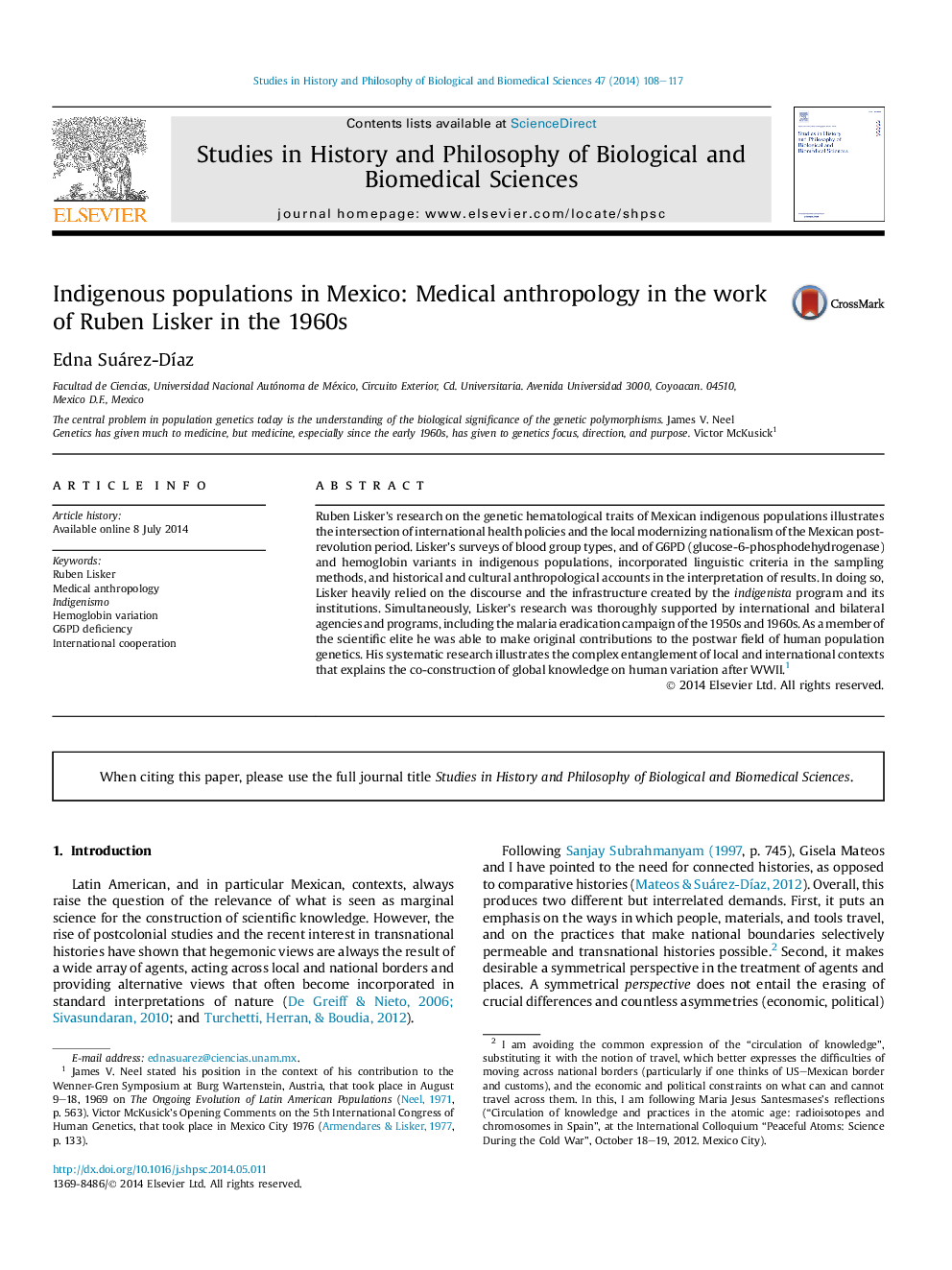| Article ID | Journal | Published Year | Pages | File Type |
|---|---|---|---|---|
| 7552645 | Studies in History and Philosophy of Science Part C: Studies in History and Philosophy of Biological and Biomedical Sciences | 2014 | 10 Pages |
Abstract
Ruben Lisker's research on the genetic hematological traits of Mexican indigenous populations illustrates the intersection of international health policies and the local modernizing nationalism of the Mexican post-revolution period. Lisker's surveys of blood group types, and of G6PD (glucose-6-phosphodehydrogenase) and hemoglobin variants in indigenous populations, incorporated linguistic criteria in the sampling methods, and historical and cultural anthropological accounts in the interpretation of results. In doing so, Lisker heavily relied on the discourse and the infrastructure created by the indigenista program and its institutions. Simultaneously, Lisker's research was thoroughly supported by international and bilateral agencies and programs, including the malaria eradication campaign of the 1950s and 1960s. As a member of the scientific elite he was able to make original contributions to the postwar field of human population genetics. His systematic research illustrates the complex entanglement of local and international contexts that explains the co-construction of global knowledge on human variation after WWII.1
Related Topics
Life Sciences
Agricultural and Biological Sciences
Agricultural and Biological Sciences (General)
Authors
Edna Suárez-DÃaz,
